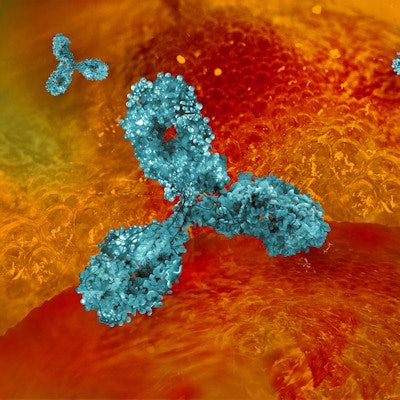
Researchers have found that a new radioimmunotherapy can reverse resistance to a common lymphoma drug, rituximab. Their findings were published in the October issue of the Journal of Nuclear Medicine.
Many non-Hodgkin's lymphoma patients develop resistance against rituximab, a phenomenon caused by changes in expression of the CD20 antigen, noted a team led by PhD candidate Marion Malenge of Nordic Nanovector ASA in Oslo, Norway. The group investigated whether the radioimmunotherapy agent lutetium-177 (Lu-177) lilotomab-satetraxetan could reverse this resistance by stimulating CD20 expression.
The team found that Lu-177 lilotomab-satetraxetan in fact was successful in stimulating CD20 antigen expression and therefore prevented tumor growth in a non-Hodgkin's lymphoma animal study (Journal of Nuclear Medicine, 1 October 2020, Volume 61:10, pp. 1468-1475).
"This work is potentially very important, as it could be a last way out for patients that have become resistant to rituximab. If those patients receive an injection of [Lu-177 lilotomab-satetraxetan], they can be treated again with rituximab and have an improved effect," said senior author Jostein Dahle, PhD, in a statement released about the study by the Society of Nuclear Medicine and Molecular Imaging (SNMMI).



















